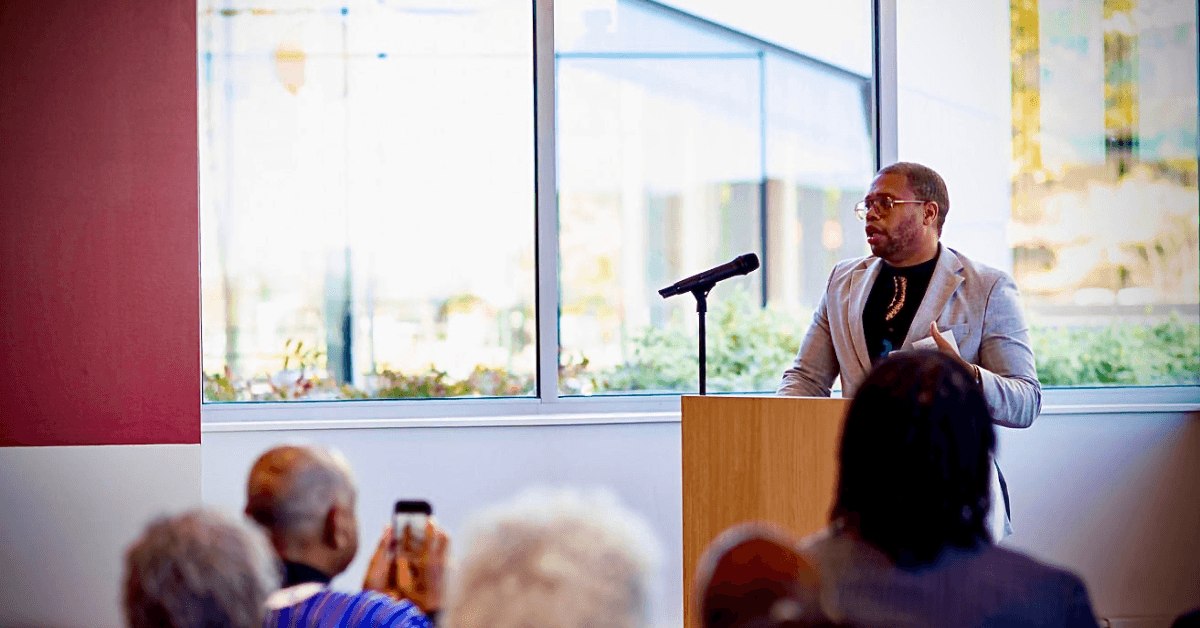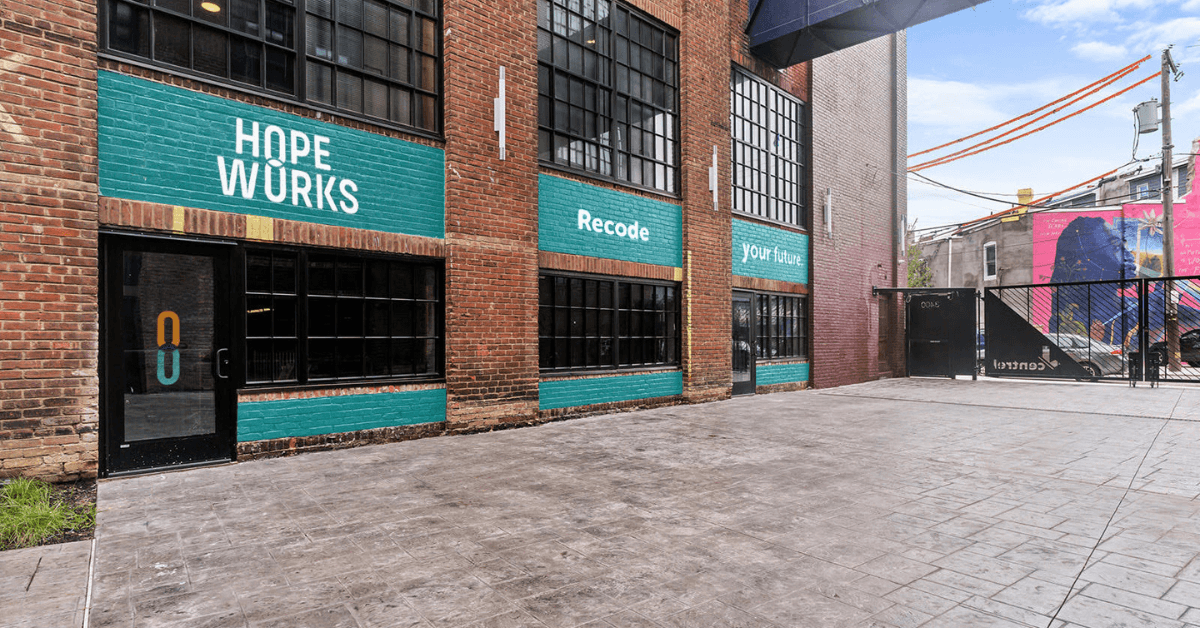In 2008, in the middle of one of the worst recessions in America’s history, Tiffanie Stanard made a decision. She would take all of the money from her personal savings she stashed for a year – money she earned from working full time and other part time jobs – and invest it into her startup idea. She’d done the math and figured that money, plus whatever amount she received from her government stimulus check, would give her the cash she needed to launch her own business.
She ended up betting right. That small, personal investment thrust her into the world of entrepreneurship – a company she was laid off from actually ended up being one of her first clients – and planted the seed for an idea she would need much further down the line.
Fast forward to 2020 and the world is in an eerily similar situation. The country is in the throes of another historic economic crisis with no end in sight, as those in power struggle to find common ground on how to help the most vulnerable. While most businesses and entrepreneurs are being forced to shut their doors, Stanard is gearing up for success after spending the past few years fortifying her business to be ready for a moment as big as this one.
In 2017, after launching several ventures, Stanard started Stimulus, – named after the stimulus check she used to launch her first business a decade earlier. Stimulus is a SaaS platform that uses data and analytics to help companies make better purchasing decisions. In 2020, the company grew to something beyond what Stanard had imagined. She’s hired five people this year alone –– adding to the three employees, including herself, who already worked there; has secured an $50,000 investment from Google For Startups; and is currently in the middle of the company’s first major fundraising round, which includes investments from Darco Capital, Gabriel Investments, and Juno Capital. Stanard was also part of the Women in Cloud Microsoft Accelerator this year, and Stimulus’ Saas platform is available on the Microsoft Azure Marketplace. An unexpected SEO perk also came for Stimulus this year: Stanard said that people have been landing on the startup’s site simply because of its name, which she had been saving for over a decade.
“2020 was actually really great for us. Our value prop was already there and it was amplified this year because people now needed to know who was locally around them selling a product or service that they needed even more than before.”
Although she’s seeing a lot of success now, things didn’t start that way. When Stimulus first launched, it was a simple tool to help people search and connect with available grant and sponsorship opportunities. The concept was there, but Stanard knew the execution could be different. In March of 2019, before the pandemic ripped through the country, Stanard and her team made a business model pivot. They wanted to bring the company’s ability to champion the usage of data in purchasing decision-making more to the forefront. Stimulus’ Saas-based platform can now be integrated with supply chain systems to help buyers make more informed purchasing decisions by looking at data that shows what type of companies they are buying from, and what other diverse options are out there.
Although they’ve seen success in what’s otherwise been a down year for most business owners, Stanard had her doubts about the coronavirus shutdown and said she was mainly worried about welcoming new team members that she was only able to meet once before hiring them. The company had to learn how to build a culture and became a team virtually, while still getting to know each other. Stanard was preparing a private office in Philly for her growing team earlier this year that she hopes to work out of in the future.
“I chose to bring on people and I was nervous the entire time, praying that I could afford to pay them,” she said. “And it worked out. We got version one of the product done, we’re working on version two, we got new customers, we got new investors. It worked out, but it was very scary for me as a CEO to deal with the unknown with nothing to compare it to, and at the same time, comfort my team.”
Another thing Stanard thought about, was the risk of growing her team during such an unpredictable time. Her workload was growing, and if she didn’t hire more employees this year, she was afraid she wouldn’t be able to run her business adequately.
“Everything we went through this year, I would not have wanted to go through it with anybody else because we became a team and accomplished so much I didn’t even think would happen this year. I’m proud of us and thankful for everyone.”
Building In Philly
When building her business Stanard made the conscious decision to launch her venture in Philadelphia. It made sense for her personally. She’s from Philadelphia and a business class she took her senior year at Little Flower Catholic High School is what got her interested in entrepreneurship. But beyond the personal connections, there was a business case for housing her startup in the city. Startup growth in Philly has continued to climb, and the city was even named among the top 10 cities on the rise for startups by Forbes. This is mainly due in part to Philly being accessible to other major East Coast startup hubs like New York and Boston, and the city having the second largest university population in the nation.
“Being from here, I saw the potential from when I started my first company to now,” she said. “Because of being an entrepreneur, I’ve traveled to New York, I’ve traveled to Atlanta, I’ve traveled to California on a regular basis. The cost of living in these cities was crazy. Locally here in Philly, we’re trying to not only build great businesses, but also build great neighborhoods.”
As far as what’s next for Stanard, she says she’s going to continue to focus on Stimulus’ growth, which includes some hiring specifically for data and sales roles, expanding product features and enhancing the company’s customer growth strategies. She’ll also be focusing on making multiple contingency plans to keep her business running through the first half of 2021, which could see a lot of changes for small businesses as a new administration takes over the White House. President-elect Joe Biden plans to create a small business fund and has committed to providing pandemic financial relief funding to all qualifying small businesses once he gets into office. Some of his work for relief funding will go into revamping the Paycheck Protection Program.
“As we saw when the results came in, people were dancing in the street and it was like a sense of relief. I’m more excited for 2021,” she said about the presidential election results. “It was going to be gloomy if it went the opposite way. I have an optimistic outlook for 2021 and at least for the next four years.”
Although her business has fared well through the pandemic, Stanard – who is a board member for Philly Startup Leaders and Philadelphia Alliance for Capital and Technologies – says that in order for Philadephia’s startup and business community to have a future in a post-Covid world, the city needs to continue to provide more resources and financial support to small businesses, especially outside of a health crisis. She put an emphasis on amplifying local companies in general, like mom and pop shops, that can’t be found anywhere else.
“It can’t just be on the government, it’s also on us,” she said. “Let’s figure out a way to put more money toward those businesses to make sure that when we do come back to the offices, those businesses are still there.”
This story is part of a partnership with WURD radio covering technology, business, and innovation in Philadelphia. This vital work is possible with support from the Philadelphia COVID-19 Community Information Fund, an effort by Independence Public Media Foundation (IPMF) and the Knight-Lenfest Local News Transformation Fund (Knight-Lenfest Fund).








